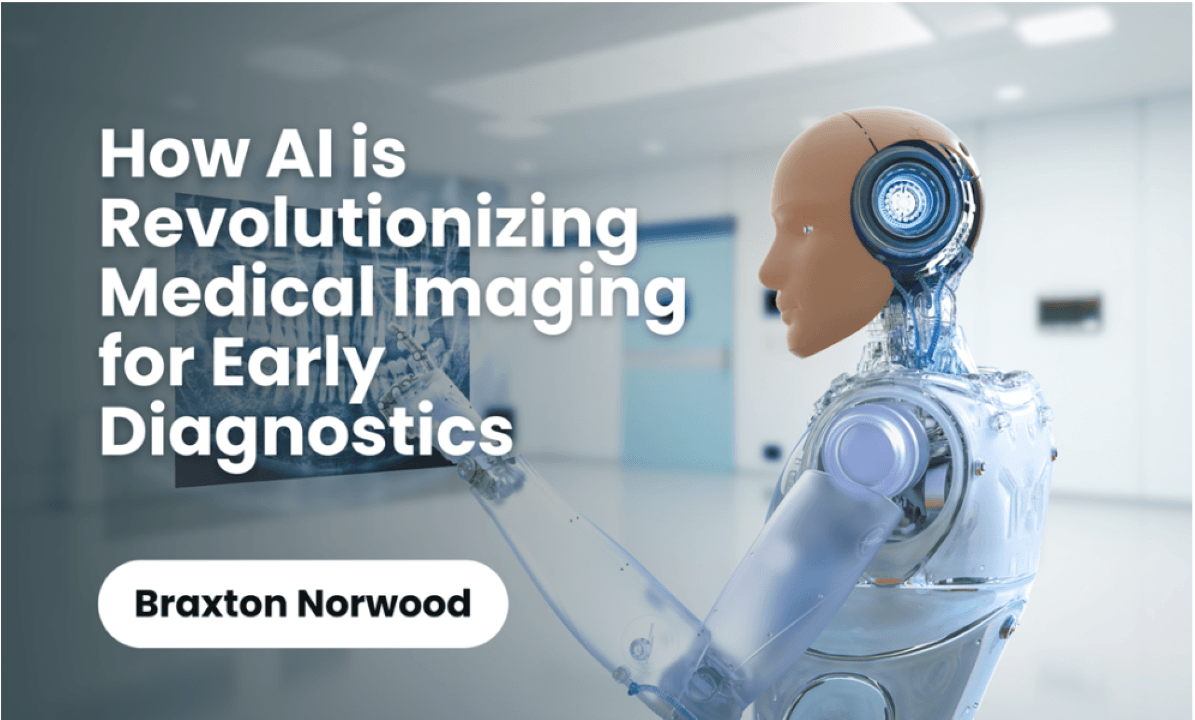
Artificial Intelligence (AI) is transforming the landscape of medical imaging, significantly enhancing early diagnostics and shaping the future of healthcare. The integration of AI into medical imaging is not just a technological advancement; it is a game-changer that offers unparalleled accuracy, speed, and efficiency in detecting diseases at their earliest stages. This shift has profound implications for patient outcomes, healthcare costs, and the overall approach to disease management.
One of the most significant ways AI is revolutionizing medical imaging is through its ability to analyze vast amounts of data quickly and accurately. Traditional imaging methods, while effective, rely heavily on the expertise of radiologists who manually review images to detect abnormalities. This process can be time-consuming and is subject to human error. AI algorithms, however, can process and interpret imaging data in seconds, identifying patterns and anomalies that may be imperceptible to the human eye. This capability is particularly valuable in detecting early signs of conditions like cancer, cardiovascular diseases, and neurological disorders, where early intervention can dramatically improve patient outcomes.
In cancer diagnostics, for example, AI-powered imaging tools have shown remarkable accuracy in identifying tumors at earlier stages than traditional methods. AI algorithms can analyze mammograms, CT scans, and MRI images, identifying minute differences between healthy and malignant tissues. Studies have shown that AI can detect breast cancer with accuracy rates comparable to or even surpassing that of experienced radiologists. This early detection allows for timely treatment, increasing the chances of successful outcomes and reducing the need for more aggressive treatments later on.
Beyond cancer, AI is also making strides in cardiovascular imaging. AI algorithms can analyze echocardiograms, CT angiograms, and other imaging modalities to detect early signs of heart disease. These tools can measure and assess the structure and function of the heart, identifying issues like plaque buildup, irregular heart rhythms, or valve problems before they become symptomatic. Early diagnosis enables more effective interventions, such as lifestyle changes or medications, that can prevent the progression of heart disease and reduce the risk of heart attacks or strokes.
Neurological imaging is another area where AI is proving invaluable. Conditions like Alzheimer’s disease, Parkinson’s disease, and multiple sclerosis often show subtle changes in brain structure or function that can be difficult to detect with traditional imaging techniques. AI can analyze brain scans to identify these early changes, enabling earlier diagnosis and intervention. For example, AI algorithms can detect changes in brain volume or identify patterns of brain activity associated with Alzheimer’s disease years before symptoms appear. Early diagnosis can lead to earlier treatment, potentially slowing disease progression and improving quality of life for patients.
The speed at which AI processes and interprets images also has significant implications for healthcare systems. Faster diagnostics mean quicker decision-making, reducing the time patients spend waiting for results and starting treatment. This efficiency is especially critical in emergency settings, where time-sensitive conditions like strokes or traumatic injuries require immediate intervention. AI-powered imaging tools can rapidly assess the severity of a stroke or the extent of an injury, guiding clinicians to make swift and informed decisions.
AI is also helping to reduce the workload of radiologists, who are often overwhelmed by the sheer volume of images they need to analyze. By automating routine tasks, such as identifying and categorizing abnormalities, AI allows radiologists to focus on more complex cases and improves overall efficiency in medical imaging departments. This collaboration between AI and radiologists creates a more streamlined diagnostic process, ultimately benefiting patients and healthcare providers alike.
Despite these advancements, challenges remain in the widespread adoption of AI in medical imaging. Ensuring the accuracy and reliability of AI algorithms, addressing ethical concerns related to data privacy, and integrating AI seamlessly into clinical workflows are critical issues that need to be addressed. However, as AI continues to evolve, its potential to revolutionize early diagnostics in medical imaging is undeniable.
In conclusion, AI is transforming medical imaging by enabling earlier and more accurate diagnoses, particularly in the detection of cancer, cardiovascular diseases, and neurological disorders. The speed and precision of AI-driven imaging tools are enhancing patient outcomes, reducing healthcare costs, and alleviating the workload of radiologists. As AI technology advances, its role in medical imaging will only continue to grow, making early diagnostics more accessible and effective for patients worldwide.
